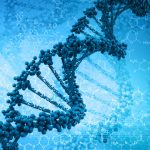 Pharma giant GSK have been one of the more enthusiastic supporters of genomics. For instance, back in 2017 I wrote about a project they had undertaken with Regeneron that saw 50,000 samples sequenced via the Regeneron technology by the end of 2017, with the full 500,000 database of samples contained in UK Biobank expected to be done within three to five years. The new sequences will then be reincorporated into the Biobank to be accessed and used by fellow researchers, but only after GSK and Regeneron have exclusive access for nine months.
Pharma giant GSK have been one of the more enthusiastic supporters of genomics. For instance, back in 2017 I wrote about a project they had undertaken with Regeneron that saw 50,000 samples sequenced via the Regeneron technology by the end of 2017, with the full 500,000 database of samples contained in UK Biobank expected to be done within three to five years. The new sequences will then be reincorporated into the Biobank to be accessed and used by fellow researchers, but only after GSK and Regeneron have exclusive access for nine months.
The company have continued this kind of work by joirning the FinnGen study that was also launched in 2017 to try and sequenze the genome of around 500,000 Finns. As with other biobanks around the world, the Finnish project aims to combine genomic data with other health data to provide longitudinal records of individuals.
Genomic analysis
The first year of the project saw genotype data collected from over 100,000 Finns, with plans to add up to 50,000 new records every six months. Alongside GSK, fellow pharma company Sanofi have joined the project, with both bringing considerable expertise as well as finance to the project.
“FinnGen offers an exciting collaborative opportunity to study genetic impacts on human conditions over time in a world class research environment,“ GSK say. “This investment will complement our longstanding interest in human genetics and is consistent with our strategy of using genetics as a key enabler of drug discovery.”
The project has a wide range of industry partners, including AstraZeneca and Genentech, and they hope that with GSK and Sanofi on board that they can expand their goals and include new analyses to the project.
At the moment, the project get their samples from hospital biobanks, with emphasis given on recruiting people from clinics that cover disease areas that are largely underrepresented in the wider population.
“With these additional resources, we aim to catalyse and support international biobank partnerships to perform meta-analyses that will generate additional insights from the greater power and global diversity that such partnerships can bring,” FinnGen say.
With these new initiatives, the FinnGen study has even greater potential to address the global need for large datasets that enable genetic discoveries that improve our understanding of disease mechanisms and benefit global healthcare systems long into the future.